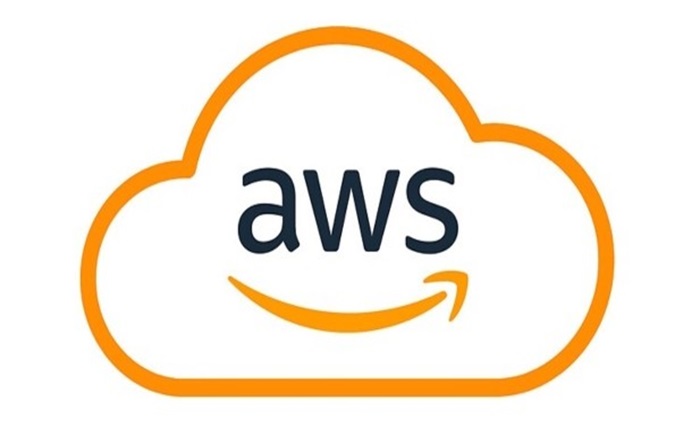Welcome to the world of blockchain, a cutting-edge technology that is revolutionising the way we view established processes. Blockchain has gained popularity recently, and for good reason: it is upending businesses left and right and has the potential to have an immense influence. Blockchain is transforming how we conduct business and engage with one another in a variety of sectors, including banking, real estate, and healthcare.
But you question, what exactly is blockchain? In a nutshell, a blockchain is a decentralised, digital ledger that securely and openly records transactions. Peer-to-peer technology enables it to operate without the help of intermediaries like banks and governmental organisations. As a result, transactions may now be done more quickly, inexpensively, and securely than before.
Blockchain has the potential to significantly impact many different businesses. Blockchain, for instance, can improve transparency, save costs, and streamline procedures in the financial and banking sectors. It can enhance patient privacy and data sharing in healthcare. It can reduce fraud and streamline real estate transactions. Additionally, it can improve the effectiveness and transparency of government activities.
So come along as we explore the world of blockchain and learn how this ground-breaking technology is upending established processes in the USA and elsewhere. The possibilities are boundless, and it’s an amazing moment to be alive!
The Effect of Blockchain on Banking and Finance
The banking and finance sectors are being upended by blockchain technology, which is altering how conventional financial systems function. Financial organisations can use blockchain to decrease the need for middlemen, speed up transactions, and boost security. Both customers and financial organisations are drawn to the technology because it offers a decentralised, open, and impenetrable mechanism for recording transactions.
The application of cryptocurrencies like Bitcoin in the banking sector is one of the most notable examples of blockchain technology. Blockchain allows for the secure exchange of cryptocurrencies without the need for middlemen, which lowers transaction costs and boosts efficiency. Using smart contracts for loans and trade finance is another example, as is using blockchain-based identity verification for customer onboarding.
Blockchain has the ability to completely transform the financial services industry. It can boost security, lessen fraud, increase transparency, and give underbanked or unbanked people access to financial services. We can anticipate more disruption and creativity in the finance and banking sector as blockchain technology develops and becomes more widely accepted.
The Effect of Blockchain on Supply Chain Management
The supply chain management sector is changing because to blockchain technology, which provides a safe and transparent way to track and control commodities as they move from one location to another. Supply chain management can be improved with blockchain, resulting in lower costs, greater efficiency, and increased transparency.
The tracking of food from farm to table, the provenance of diamonds, and the tracking of pharmaceutical items from producer to patient are a few examples of how blockchain is being used in supply chain management. With blockchain, businesses can swiftly identify and fix any supply chain issues while customers may feel confident in the legitimacy and origin of items.
The potential for blockchain to increase supply chain efficiency and transparency is enormous. Blockchain can aid in lowering fraud and raising accountability by offering a tamper-proof and transparent record of every transaction. The supply chain management sector can anticipate more innovation and advancements in the near future as blockchain technology develops.
The Effect of Blockchain in Healthcare
In order to manage and share patient data, blockchain technology offers a secure, decentralised, and transparent platform. This platform is revolutionising the healthcare sector. Blockchain enables healthcare providers to safely and openly store and share patient records, lowering the possibility of data breaches and enhancing data interoperability.
Clinical trial administration, protecting and sharing of medical records, and tracking the supply chain for pharmaceuticals are a few examples of how blockchain is being used in healthcare. By providing patients more control over their data and letting them decide who has access to their medical information, blockchain technology can also enhance patient privacy.
Blockchain technology has a lot of potential to enhance patient privacy and data exchange. Blockchain can aid in ensuring the accuracy and security of patient data by offering a tamper-proof and transparent record of each transaction. In the near future, the healthcare sector may anticipate further innovation and advancements as blockchain technology continues to advance.
The Effect of Blockchain on Real Estate
A safe, decentralised, and transparent platform for real estate transactions is being offered by blockchain technology, which is upending the real estate sector. Blockchain technology makes it possible to perform real estate transactions more quickly, affordably, and securely than ever before. A tamper-proof and transparent record of property ownership and history can be provided through blockchain, lowering the risk of fraud and enhancing transparency.
The tokenization of real estate assets, which enables fractional ownership and enhanced liquidity, and the use of smart contracts for property transactions, which automate and streamline the buying and selling process, are two examples of how blockchain is being used in real estate.
There is great potential for blockchain to eliminate fraud and streamline real estate transactions. Blockchain can aid in ensuring the accuracy and security of property transactions by offering a tamper-proof and transparent record of each transaction. In the foreseeable future, the real estate sector may anticipate more innovation and advancements as blockchain technology continues to advance.
Government Impact of Blockchain
Government services are being transformed by blockchain technology, which offers a safe, transparent, and decentralised platform for information management and sharing. Governments may use blockchain to boost operational efficiency, cut expenses, and promote transparency.
The distribution of social assistance payments, the administration of voting systems, and the safe sharing of official documents are a few examples of how blockchain is being used in government. By offering a transparent and tamper-proof record of every transaction, blockchain technology can help improve transparency in government operations.
The blockchain has a huge potential to improve efficiency and transparency in government operations. Blockchain can aid in lowering corruption, boosting public confidence in government, and enhancing government services by offering a secure and open platform for information management. Governments can anticipate more advancements and innovations as blockchain technology develops in the next years.
Conclusion
With its secure, decentralised, and transparent platform for information management and sharing, blockchain technology is poised to transform conventional processes across a range of industries. The potential impact of blockchain is enormous, with applications in everything from finance and banking to supply chain management, healthcare, real estate, and government.
Future blockchain applications are likely to be even more ground-breaking and revolutionary as the technology develops. Blockchain technology has the potential to significantly improve data security, save costs, promote transparency, and streamline procedures.
It is crucial to be educated and up to date with the newest advancements for individuals who are interested in finding out more about blockchain and its applications in their sector. Individuals and companies can position themselves for success in a fast changing environment by comprehending the potential of blockchain and its consequences for conventional systems.
In other words, blockchain is no longer just a trendy term; it is a revolutionary technology that is already upending established structures. Blockchain has a promising future, and those who take advantage of its potential will prosper in the emerging digital economy.
Read More You May Like:














Post Comment